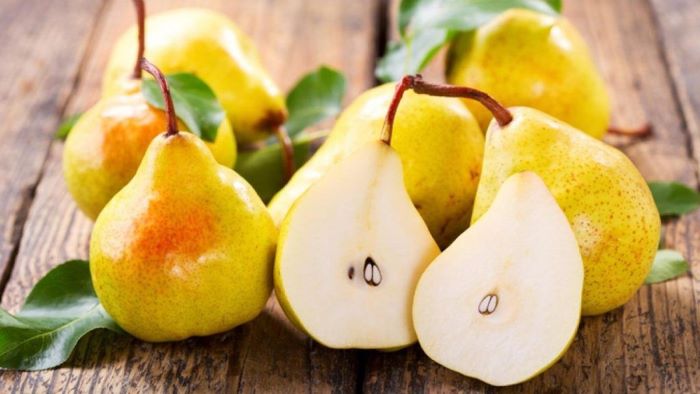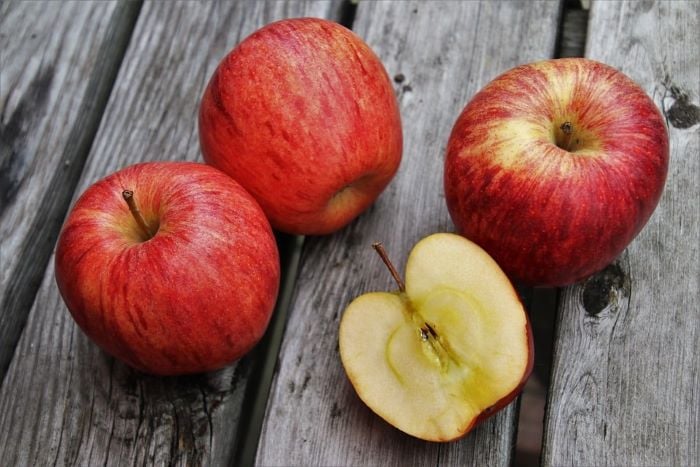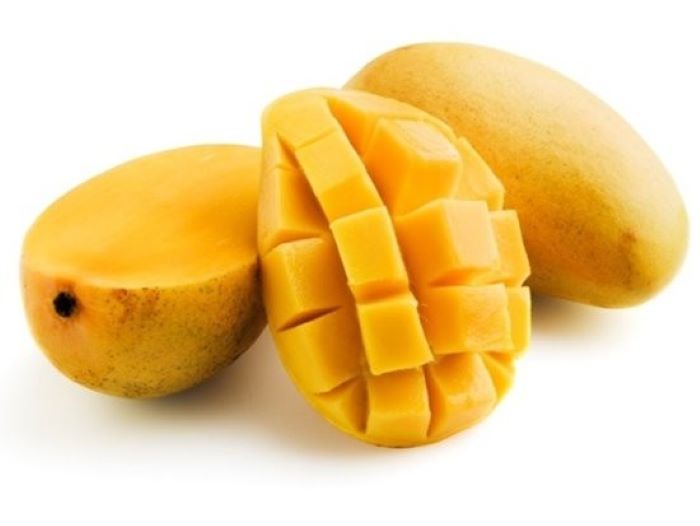1. Pear
Pears are considered a safe fruit for people with diabetes. They have a sweet and refreshing taste, but with a low glycemic index of 38. Additionally, pears are high in fiber, providing essential nutrients for the body.

The anthocyanin found in pears helps regulate blood sugar levels, making it beneficial for patients with type 2 diabetes.
Pears can also reduce cholesterol levels in the blood due to their fiber and pectin content. They are low in calories and high in fiber, which can help you feel full for longer, making them suitable for weight loss plans.
Pears not only have a low glycemic index, making them suitable for people with diabetes, but they also promote digestive health, provide anti-cancer benefits, and protect bone and joint health. As a result, they are widely consumed fruit.
2. Apple
Apples have a glycemic index of 39, so people with diabetes don’t have to worry about a sudden increase in blood sugar levels or negative impacts on their health when consuming apples.
Apples have a sweet and delicious taste and are beneficial for overall health. In addition to their well-known benefits such as improving cardiovascular health, lowering blood pressure, and aiding in weight loss, apples are also a “savior” for individuals with diabetes.

Apples are rich in fiber, which is good for the digestive system. Specifically, they contain pectin (in the apple peel), which can protect beneficial bacteria and lactic acid in the gut, enhancing their effectiveness.
Consuming apples can reduce the risk of stroke and diabetes. Apples are considered a healthy food and can contribute to preventing the risk of diabetes and stroke.
3. Mango
Mangoes are rich in fiber and antioxidants. These two factors help control blood sugar levels effectively.

Many people assume that mangoes have a high glycemic index due to their intense sweetness. However, mangoes actually have a relatively low glycemic index, below 55.
When consuming a moderate amount of mangoes, you can rest assured that your blood sugar levels will not spike. However, ripe mangoes have more sugar than unripe ones, so you should consider this before eating.



































